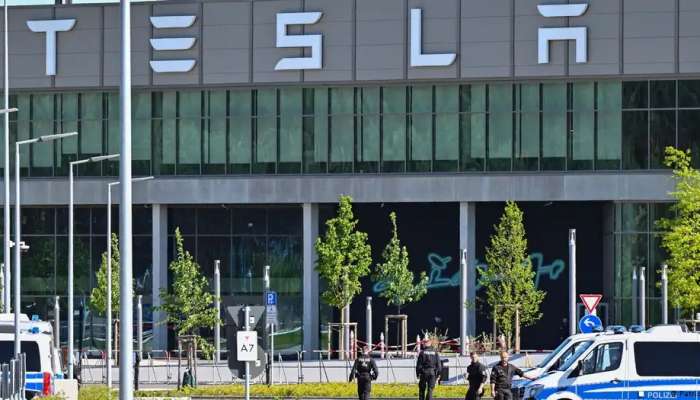Tesla’s Gigafactory in Berlin has been granted provisional permission to expand despite opposition from local residents. The factory, located in Grünheide, just outside of Berlin, is Tesla’s only site in Europe. The expansion plans would allow Tesla to increase production capacity from 500,000 vehicles per year to one million. The original plans involved clearing more than 100 hectares of woodland, but after a local referendum, Tesla scaled back the project and scrapped plans for a new freight depot. Tesla has been operating in Brandenburg since March 2022 and employs around 12,000 people at its Grünheide site.
The environment ministry of Brandenburg has not officially granted building permission yet but has allowed Tesla to begin construction “at its own risk” following positive talks. The approved plans include laying new underground pipes, building new stairwells, and installing solar panels on roofs. A new asphalted logistics area for new cars is also planned, along with a larger production hall. Despite the positive developments, the factory has faced challenges, including a power cut caused by unknown saboteurs and clashes with climate activists who attempted to storm the site.
The factory expansion is a strategic move for Tesla to meet the increasing demand for electric vehicles in Europe. With the approval of the expansion plans, Tesla aims to ramp up production and solidify its presence in the European market. The company’s CEO, Elon Musk, has been vocal about the importance of sustainable transportation and reducing greenhouse gas emissions. By expanding the Gigafactory in Berlin, Tesla can contribute to the transition towards electric vehicles on a larger scale.
The expansion of the Gigafactory will also create job opportunities in the region, as Tesla plans to increase its workforce in Grünheide. The current workforce of around 12,000 employees is expected to grow with the expansion of production capacity. This is good news for the local economy and the residents of Grünheide, as the factory provides stable employment and economic growth. The decision to allow Tesla to begin construction “at its own risk” indicates the importance of the project for the region’s development and the positive impact it could have on the local community.
Despite the resistance from some local residents and environmental concerns, the approval of the Gigafactory expansion signals a major investment in sustainable technology and economic growth. Tesla’s commitment to expanding its production capacity in Europe demonstrates the company’s long-term vision and strategic planning. By investing in renewable energy sources and green technology, Tesla aims to lead the way in sustainable transportation and make a positive impact on the environment. The expansion of the Gigafactory in Berlin is a step towards achieving these goals and establishing Tesla as a key player in the electric vehicle market in Europe and beyond.











